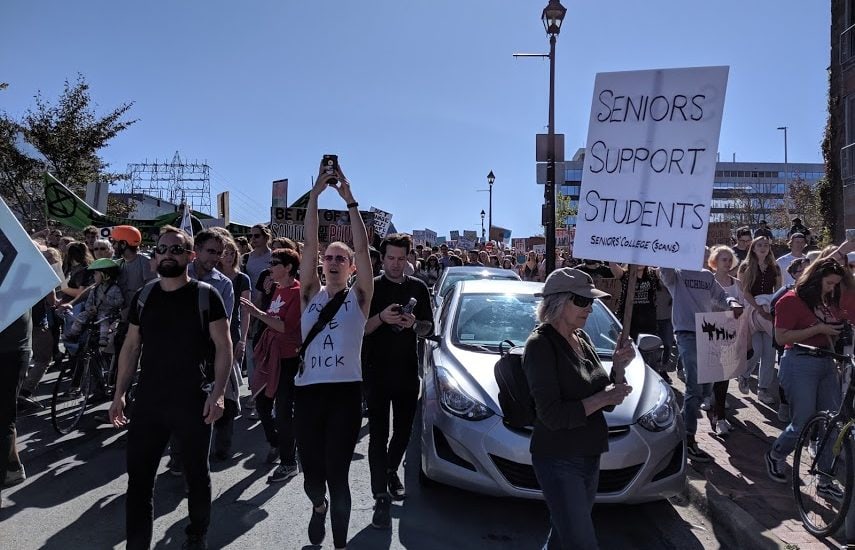
KJIPUKTUK (Halifax) – Voters in Halifax are gearing up for municipal elections on October 17, during a global pandemic.
With issues centred around transit, affordable housing, the climate crisis, a livable wage, and accessibility, this election will serve as an indicator of how communities in HRM move forward to take on these issues.
Voter turnout, which dropped to under 30 per cent in 2016, faces a number of Covid-related barriers at the polls. But by conducting on-line and over-the-phone voting, voters are provided with a safe alternative to exercise their civic duty without risking their health to do so.
One aspect of municipal elections that keeps voter turnout low is that candidates are not affiliated with a political party, vying for independent seats rather than a majority.
One voting bloc that remains low key in municipal elections is the youth vote. Kristin R. Good, an associate professor in Dalhousie University’s Department of Political Science, believes ‘tangible’ change can happen at the municipal level.
Good, who specializes in municipal politics, highlights a number of reasons young people are stakeholders in municipal elections. These include, “the extent to which housing is affordable in the city, the quality of public transit, access to safe means of active transportation, their options in terms of recreation and so many other services that are fundamental to one’s daily life.”
“No one would argue that the Black Lives Matter movement’s call to defund the police or the debate about the removal of the Cornwallis statue aren’t political,” said Good. “Systemic racism and the need to decolonize the Canadian state and pursue meaningful reconciliation with Canada’s Indigenous peoples are among the most pressing issues of social justice the country faces.”
Good points to a wide range of roles municipalities play in achieving meaningful change in our communities. These roles include decision-making about “building codes, transportation, waste management, urban parks, trees, and other areas all affect the environment and our ability to mitigate climate change.”
Joanna Clark, chairperson of the Canadian Federation of Students-Nova Scotia (CFS-NS), hopes students continue pushing for meaningful change, and use the municipal election to do so.
“Who gets elected to city council affects us and it’s important we pay attention to what candidates are promising,” she says.
One in 13 residents of Halifax are students, according to Clark, contributing to local businesses, renting homes, using public transit, and volunteering in their communities.
“We are passionate about improved investment in arts and culture, raising the minimum wage to a living wage, tackling food insecurity, access to affordable housing and transit, increased commitment to tackling the climate crisis and decolonizing our city,” Clark said.
Competition is fiercest in District 11 (Spryfield-Sambro Loop-Prospect Road) as a dozen candidates vie for a single seat in Council, while incumbent Tim Outhit of District 16 (Bedford-Wentworth) is running unopposed and will reclaim his position on Council.
Click here to ensure you’re on the list of electors. If you need to register or update voting information, call the Voter Help Line at 902-490-8683 or 1-844-301-8683.
With a special thanks to our generous donors who make publication of the Nova Scotia Advocate possible.
Subscribe to the Nova Scotia Advocate weekly digest and never miss an article again. It’s free!



